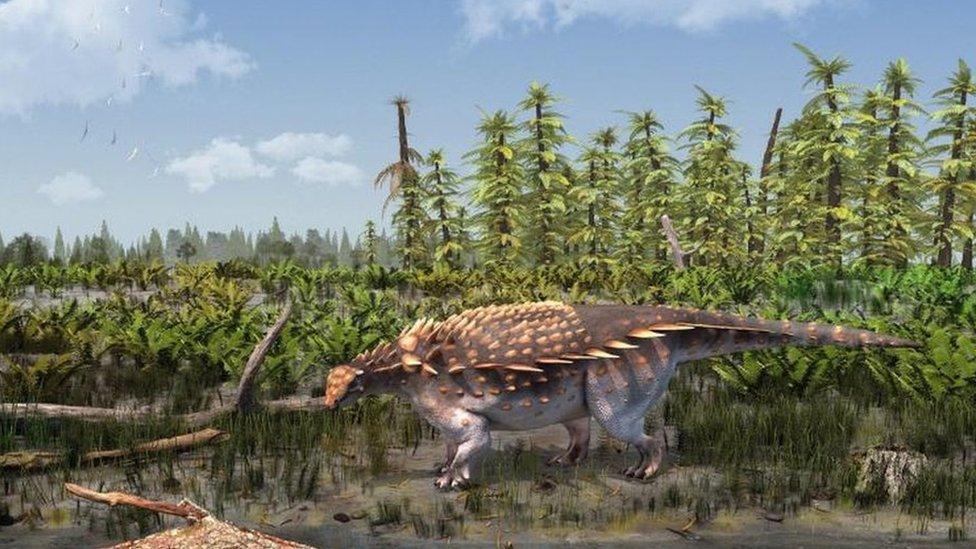Ankylosaur: New dinosaur species discovered on Isle of Wight
- Published
- comments

An artist's impression of how the new dinosaur Vectipelta barretti looked
A new species of dinosaur has been discovered on the Isle of Wight, off the south coast of England, for the first time in nearly 150 years.
The giant armoured reptile belonged to a group of plant-eating dinosaurs known as ankylosaur.
The fossils were discovered in rocks dating back between 66 and 145 million years.
It is the second armoured dinosaur to ever be found in the island, however experts don't think the two species were very closely related.
What's been discovered?
An artist's impression of how Vectipelta barretti looked
The new species has been named Vectipelta barretti - after Professor Paul Barrett who has worked at the Natural History Museum in London for 20 years.
Prof Barrett said he was "flattered and absolutely delighted to have been recognised in this way".
It is the second armoured dinosaur to be found on the island - the first one being Polacanthus foxii, which was unearthed in 1865.
However scientists say that the new discovery differed to the one that was discovered 142 years ago.
Vectipelta barretti had a different neck, back and pelvic bones to its predecessor and it also had more spiked armour.
Experts think the new dinosaur was more closely related to ankylosaurs discovered in China, suggesting they roamed freely from Asia to Europe in the Early Cretaceous period.
Scientists say that the rocks from the fossil site where the new dinosaur was discovered are "hugely important" in understanding more about how dinosaurs went extinct.
